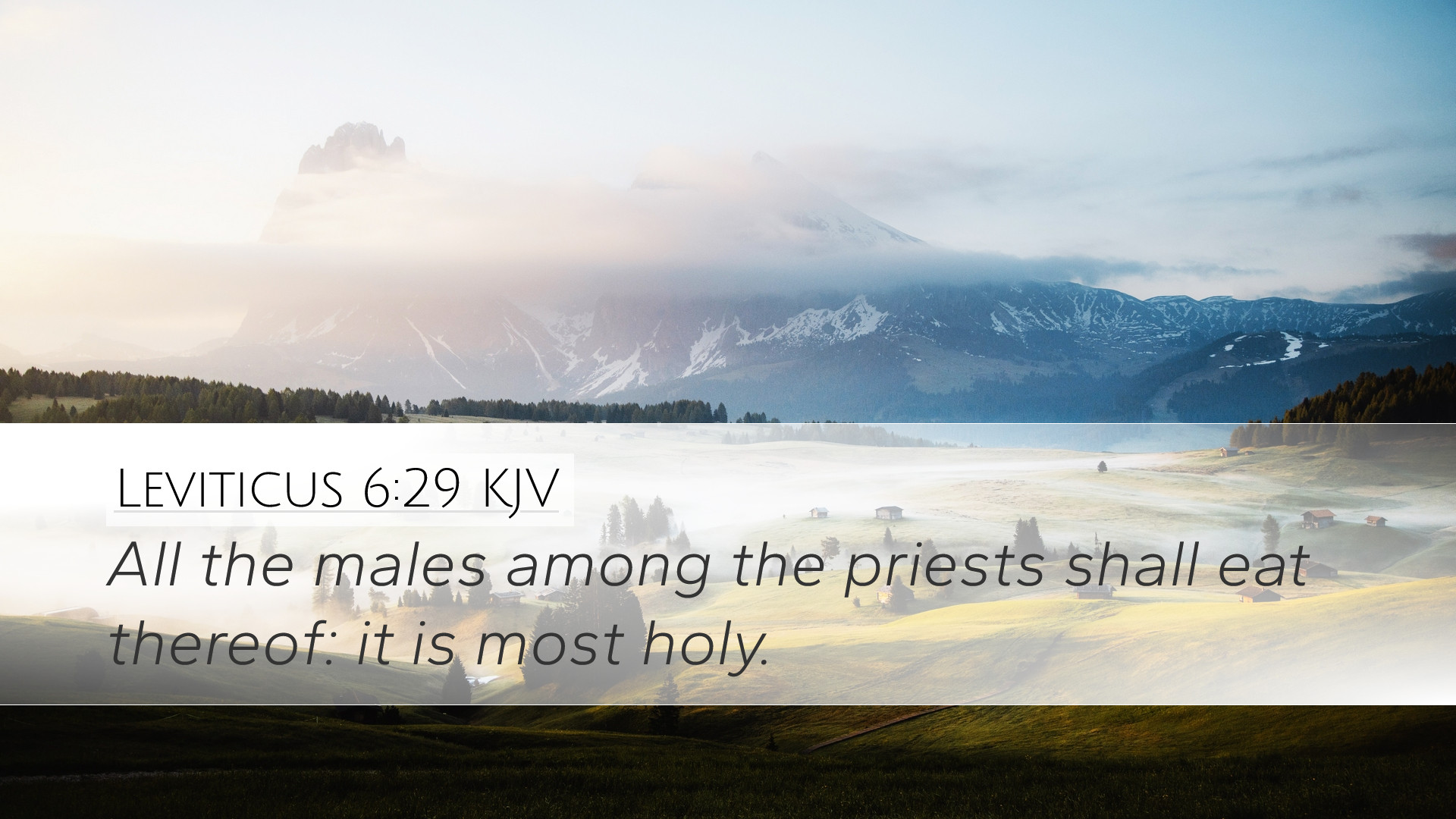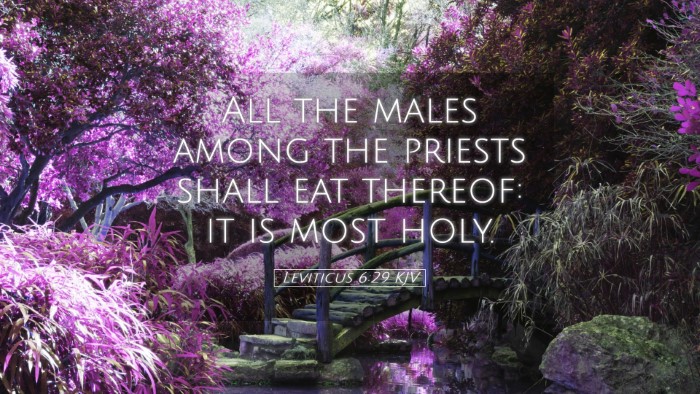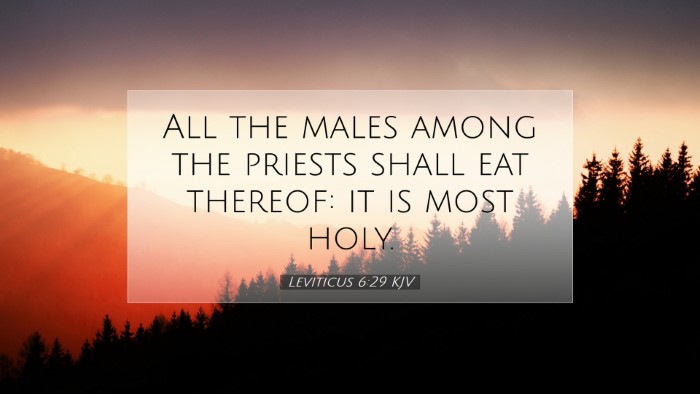Commentary on Leviticus 6:29
"All the males among the priests shall eat thereof; it is most holy." (Leviticus 6:29, KJV)
Introduction
This verse falls within the regulations concerning the offerings made to the Lord and signifies the importance of the priestly role in Israel. The concept of holiness is central in this verse and extends beyond mere dietary laws; it encapsulates the entire sanctity of the service performed by the priests. Here, we will synthesize insights from respected public domain commentaries to provide a thorough exegesis of Leviticus 6:29.
Context of Leviticus 6
The Book of Leviticus serves as a manual for the Levitical priests, detailing their duties, the sacrificial system, and the laws governing worship. Leviticus 6 outlines specific regulations concerning burnt offerings, sin offerings, and the provisions for the priests. In this context, verse 29 indicates the portion of the sin offering designated for the priests, emphasizing their special status within the Israelite community.
Understanding the Priestly Role
The significance of the phrase "All the males among the priests" is underscored by the requirement for the priesthood to be male, which embodies God’s appointed order (Barnes). This hierarchical structure was intended to maintain a distinct level of purity and responsibility among those serving in the temple.
Significance of Holiness
"It is most holy" signifies not only the sacredness of the sacrifice but also the elevated status of the priests who partake in it. Adam Clarke points out that the holiness of the offerings indicates God’s presence and the serious nature of the ritual. The priests, by eating these offerings, engage in a sacred act that symbolizes their communion with God.
The Implications for Worship
The stipulation for the priests to consume the offerings presents several implications for worship. Firstly, it highlights the inextricable link between sacrifice and priesthood. This relationship emphasizes the priests as mediators between God and the people, for the consumption of holy offerings reflects their part in the covenant community (Henry).
Physical and Spiritual Nourishment
Moreover, the act of eating the offerings serves as both physical and spiritual nourishment for the priests (Clarke). In their role, the priests are not merely performing rituals; they are embodying the spiritual life of the nation. By consuming the offerings, they partake in the blessings that flow from proper worship, thereby fulfilling their duty to maintain the holiness of the sacrifices.
Theological Reflections on Offerings
Theological insights gleaned from this verse reveal the depth of sacrifice in biblical worship. The provision of offerings, designated as most holy, reflects God's desire for fellowship and atonement. Each sacrifice is not merely a ritualistic act; it is an invitation to deeper communion with God (Barnes).
Comparison with New Testament Practices
In the New Testament context, the holiness attributed to these sacrificial offerings is fulfilled in Jesus Christ, the ultimate High Priest. As noted by many scholars, Christ’s sacrifice embodies the full meaning of holiness and atonement, replacing the shadow of the Old Covenant (Henry). The consumption of the offerings by the priests foreshadows the Eucharist, where believers partake in the body and blood of Christ, emphasizing the continuity of sacrificial themes throughout Scripture.
Conclusion
Leviticus 6:29 is more than just a regulation for priestly conduct; it encapsulates the essence of holiness, the gravity of sacrificial worship, and the vital role of the priests in mediating God's presence among His people. By synthesizing the insights of Matthew Henry, Albert Barnes, and Adam Clarke, we understand that this verse lays foundational principles of worship that extend into the New Testament and continue to inform Christian praxis. The call to holiness remains applicable to all who serve in ministry, inviting them to partake in the divine life and to embody the sanctity of worship in every act of service.


